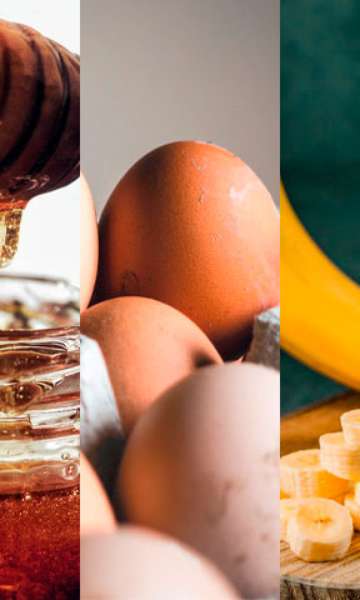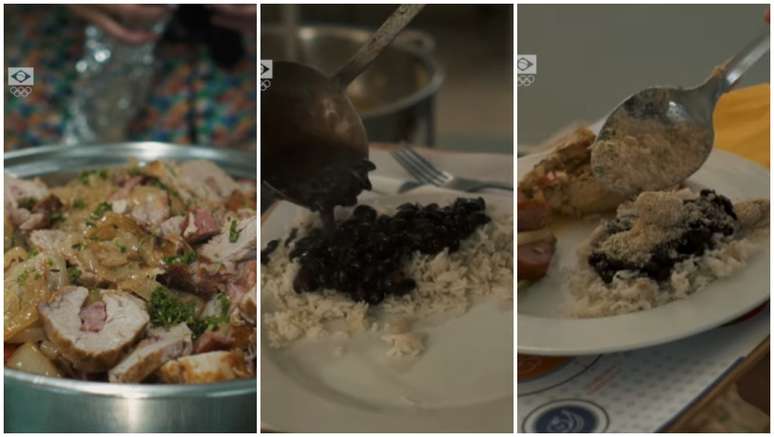Team Brasil’s base in France offers home-made cuisine and Brazilian flavours
Brazil has a delegation of 276 athletes from different sports at the Paris 2024 Olympic Games: women’s football, skateboarding, athletics, canoeing, artistic gymnastics, basketball and volleyball are just a few.
To do well and compete for medals, in addition to training, preparation and talent, it is necessary to maintain a balanced and fortified diet.
Taste spoke with nutritionist Renata Parra, Nutrition Coordinator of the COB (Brazilian Olympic Committee), who explained what foods are part of the daily meal of the Brazilian athletes of Team Brasil, a base created since 2012, which has a chef of Brazilian cuisine and cuisine. Every day, about 16 kilos of rice and beans are prepared.
“Our premise is to try to bring athletes as close to home as possible, offering more Brazilian food and also thinking about the nutritional value that the athlete needs. We always include in the menu rice, beans, farofa, proteins, salads, cooked vegetables, roasts, pasta… Variety of flavors, of foods, but that cover all the needs of the athlete”, he explains.
The meals, according to the professional, are tasty and taste like homemade condiments. “The food is not very spicy, every time we add a preparation that contains sauce, like pasta, it goes on the side.”
Volleyball athlete Gabriela Guimarães chose vegan feijoada as her favorite dish at the Brazilian headquarters in Paris.
The food is also served in grilled, boiled and roasted preparations – without frying, in an attempt to reduce fat consumption. In addition to the typical Brazilian menu, the athletes also have French fruits for dessert, ice cream, açaí and tapioca.
“There’s always something sweet to bring emotional comfort to athletes. It ranges from something healthier, like chia pudding, mango pudding with coconut, to a brigadeiro, a mousse, a chocolate cake,” he reveals.
The Olympic Village, where the athletes are accommodated, also offers meals with a varied cuisine and without much control by the Brazilian team, since it is intended for athletes from all over the world, and well attended, often with queues to gather the athletes. dishes. .
“All athletes coming from Brazil, before entering the Village – or even during their stay at the Village – have the opportunity to eat at our Team Brasil base, which is located 500 meters from the Village, and there we serve two meals, lunch and dinner”, adds the nutritionist.
Renata Parra created the menu with the help of a Brazilian chef, who lives in France. “What cannot be missing from the lunch and dinner menu is delicious food, but also balanced,” explains the nutritionist.
Athletes have a varied buffet available, with different sources of carbohydrates such as potatoes, farofa, pasta, rice, white and brown rice, common and whole wheat pasta, two sources of protein, one red meat and one white meat – be it chicken or fish, as well as a vegetable protein, such as a grain burger.
Every day the menu also features soy, assorted vegetables, greens and cooked greens for a nice salad.
“We consider all the ingredients, trying to balance them based on the energy needs that sport entails, always having many sources of carbohydrates and without forgetting proteins.”
International cuisine in the Olympic Village
Unlike Team Brazil’s base, the Olympic Village includes athletes from all countries and offers a menu with international cuisine, as well as French.
“There is more spicy food, more fatty food, there are fried foods, but there is also a healthier side, gluten-free, lactose-free, vegan options, salad, legumes, vegetables… But we don’t have much control over how it is prepared, or even how they season it. And since it is a village with a wait, a delay in replacing food, I consider it the advantage of our base,” explains Renata Parra.
What can’t be missing?
According to the nutritionist, the basis of an athlete’s diet, especially during the competitive period, are carbohydrates. “So you can’t miss fruit, cereals, a little honey, jam, bread, thinking about snacks and breakfast. And for lunch and dinner you can’t miss rice, pasta, potatoes, without forgetting proteins, very important for the athlete’s recovery, whether they are animal or vegetable proteins”.
The professional also emphasizes that, thinking about the recovery of the athlete, vegetables are essential. “They are very rich in nutrients, a source of antioxidants,” he says.
Race Day Diet
Some sports categories require a special diet on the day of the competition. “If we are talking about a type of fight, where there will be a weigh-in the next day or the day of the fight, this athlete will not be able to eat much. He will have more restrictions in water, in food, he will be on a more hypocaloric level”, explains Renata.
In general, on match and competition days, it is necessary to increase hydration and carbohydrate consumption. “And do not forget to consume proteins and follow a balanced diet, eating at short intervals. With this concern for energy replacement,” he concludes.

Want to improve your mood? Check out these nutritional tips
Source: Terra
Ben Stock is a lifestyle journalist and author at Gossipify. He writes about topics such as health, wellness, travel, food and home decor. He provides practical advice and inspiration to improve well-being, keeps readers up to date with latest lifestyle news and trends, known for his engaging writing style, in-depth analysis and unique perspectives.







![Plus Belle La Vie Adher: What awaits you, on Tuesday 12, 2025, in 396 episodes [SPOILERS] Plus Belle La Vie Adher: What awaits you, on Tuesday 12, 2025, in 396 episodes [SPOILERS]](https://fr.web.img5.acsta.net/img/63/18/631898f05951ccd0e91722012122eaa4.jpg)
